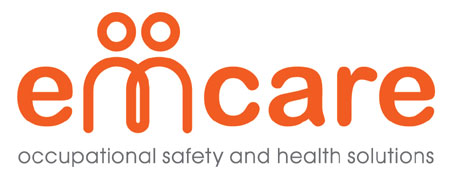Scotland’s Mental Health First Aid (SMHFA) gives people the skills and confidence to support someone experiencing mental distress, offer appropriate first-line help, and guide them towards professional support. If you’re curious about how SMHFA works, who it’s for, and how to arrange training for your team, this comprehensive FAQ has you covered—tailored for organisations across Scotland seeking credible, practical training that makes a lasting difference.
If you’re ready to book or compare options as you read, you can head straight to EmCare’s Mental Health Courses page to order online via the Mental Health Courses hub. Prefer to talk it through? Call 0141 404 0075 or reach us on the contact page.
What is Scotland’s Mental Health First Aid (SMHFA)?
SMHFA is a structured, evidence-informed programme that equips non-clinicians with the knowledge, language, and practical tools to support someone struggling with their mental health. Think of it like physical first aid—except you’re applying core skills (listening, assessing risk, signposting) to mental health concerns such as anxiety, depression, psychosis, self-harm, or suicidal thoughts.
The emphasis is on:
- Recognising early warning signs and changes in behaviour.
- Approaching conversations with empathy and non-judgement.
- Assessing immediate risk (including suicide risk) and knowing when/where to escalate.
- Encouraging professional help and appropriate self-help strategies.
- Reducing stigma and building a recovery-focused culture.
SMHFA is not a licence to diagnose or treat. Instead, it gives people the competence and confidence to respond well in the moment and to act as a compassionate bridge to further support.
How is SMHFA different from other mental health courses?
Several mental health awareness workshops exist, but SMHFA stands out in a few ways:
- Scottish context and signposting: The course references Scottish policy, NHS services, helplines, and third-sector resources that participants can actually use. This localisation matters when you’re helping someone navigate support.
- Practical, skills-based design: Beyond theory, learners practise how to ask difficult questions, how to listen in a non-judgemental way, and how to triage next steps.
- Balanced coverage: SMHFA addresses common conditions (anxiety, depression), crisis topics (self-harm, suicidal ideation), and less understood areas like psychosis—all within a supportive, stigma-aware framework.
- Quality-assured delivery: Trained instructors follow a standardised curriculum, ensuring consistency without losing room for discussion and real-world examples.
Who should attend SMHFA?
Short answer: anyone. In practice, we commonly train:
- Managers, team leaders, HR and people professionals who want to build psychologically safer workplaces and respond consistently to concerns.
- Front-line staff and customer-facing teams—from hospitality to housing—who encounter people in distress or crisis.
- Education and youth settings—tutors, student services, support assistants, youth workers—where early signposting makes a profound impact.
- Volunteers and community workers who operate in trusted roles and may be the first to notice a problem.
- Health, social care, and third-sector practitioners who want a shared language and consistent response model across services.
- Anyone who wants to support friends, colleagues, or family members with more than good intentions—grounded in recognised best practice.
No prior experience is required. The course is accessible, respectful, and designed to meet participants where they are.
What does the SMHFA course cover?
A typical SMHFA course spans 12 contact hours, commonly delivered as two full days or split into shorter sessions to suit operational needs. Core content includes:
- Understanding mental health and mental illness: Language, prevalence, attitudes, and the importance of a recovery-oriented, person-centred approach.
- Stigma and discrimination: How stigma harms help-seeking and recovery—and how to counter it through everyday actions.
- How to have the first conversation: Building rapport, active listening, validating feelings, and keeping the person at the centre.
- Assessing risk and prioritising safety: Recognising red flags, exploring suicidal thoughts sensitively, and understanding when urgent help is required.
- Supportive strategies: Encouraging professional help (GP, IAPT-style services, crisis teams, community resources) and appropriate self-help strategies (sleep, routine, social connection, peer support).
- Focus topics: Anxiety and panic, depression and low mood, self-harm, suicidal ideation, psychosis (including how to respond without escalating distress), and the impact of alcohol/substance use.
- Action planning and boundaries: What you can do, what you shouldn’t do, how to look after yourself after a difficult conversation, and how to signpost responsibly.
What skills will I walk away with?
Graduates consistently report gains in:
- Confidence: Knowing how to start—and sustain—the right kind of conversation.
- Composure under pressure: Understanding what to say when someone discloses distress or risk.
- Clarity of next steps: A practical sense of where to signpost in Scotland and how to follow up appropriately.
- Communication quality: Better listening, fewer assumptions, and language that supports dignity and choice.
- Stigma reduction: A renewed appreciation for recovery, personhood, and the power of timely, compassionate support.
These skills translate into real-world benefits: earlier interventions, safer escalations, and fewer situations spiralling into crisis.
How long is the certificate valid, and do I need a refresher?
SMHFA certificates don’t “expire” in the way some regulated qualifications do, but refresher learning every 2–3 years is strongly recommended. The mental health landscape evolves—services, best-practice language, and supportive resources change. EmCare can advise on refresher pathways or bespoke top-up sessions aligned to your sector.
Is SMHFA evidence-informed?
Yes. Mental Health First Aid programmes have been studied internationally and consistently show improvements in knowledge, confidence, supportive intentions, and helping behaviours among participants. SMHFA adapts that model for Scotland with context-specific signposting and casework. While SMHFA is not therapy, the indirect impact—earlier recognition, better conversations, reduced stigma—supports earlier help-seeking and, in many cases, better outcomes.
How does SMHFA help organisations?
Organisations adopt SMHFA for reasons that are both human and strategic:
- Earlier flagging, fewer crises: Staff spot concerns sooner and know how to respond constructively.
- Greater consistency: Teams align on language, boundaries, and escalation routes.
- Culture and trust: Employees feel safer raising concerns when they know colleagues are trained to respond well.
- Absence and presenteeism: Compassionate, timely support often shortens absence and prevents issues from worsening.
- Legal and reputational prudence: While SMHFA isn’t a legal shield, it aligns with good-practice expectations around psychological health and safety, duty of care, and equalities.
For large organisations, a tiered approach works well: combine SMHFA with manager training, well-being policy reviews, trauma-informed practices for high-risk roles, and clear internal comms.
How many Mental Health First Aiders does my workplace need?
There’s no universal ratio. Factors include your headcount, shift patterns, risk profile (for example, front-line or lone working), geography, and workforce demographics. Many employers aim for broad coverage across departments and shifts, ensuring at least one trained person is accessible at any time. EmCare can help you map coverage and create a practical rollout plan.
Is SMHFA suitable for hybrid or remote teams?
Absolutely. Remote work can mask distress; colleagues may have fewer informal touchpoints to notice changes in behaviour. SMHFA gives remote leaders and peers a toolkit they can use over a call just as effectively as in person: how to ask, how to listen, what to offer, and how to escalate when needed. EmCare can deliver SMHFA face-to-face or online (subject to format and availability) and will advise on the best option for your context.
Does SMHFA include suicide intervention skills?
SMHFA includes sensitive, practical guidance on recognising and responding to suicidal thoughts, including how to ask directly and compassionately, how to assess immediate risk, and how to seek urgent help. Some organisations—especially those with high public contact or crisis exposure—choose to layer SMHFA with dedicated suicide intervention training. If that’s relevant to your context, EmCare can advise on complementary learning paths.
What support do participants receive after the course?
Participants receive a course handbook and curated resources. EmCare trainers also signpost reputable Scottish services, helplines, and digital supports. Organisations sometimes set up peer check-ins or communities of practice to sustain skills, and they may build a well-being intranet page so staff know how to contact trained First Aiders and where to find crisis and non-crisis resources.
How do we look after our trained Mental Health First Aiders?
Caring for others can be emotionally demanding. We recommend:
- Clear role boundaries: First Aiders are not on-call counsellors; their role is early support and signposting.
- Managerial backing: Ensure managers understand and respect the role’s scope and time needs.
- Debrief options: Offer supervision-style support or peer debrief after challenging situations.
- Refreshers and CPD: Top-ups help First Aiders stay confident and current.
EmCare can help you design a sustainable support model tailored to your organisation.
How is SMHFA delivered?
Typical formats include:
- Two full days (in person) for immersive practice and discussion.
- Four half-days (in person or online) to ease operational pressures.
- Shorter modular sessions across a fortnight for teams with strict rota constraints.
Delivery can be on-site at your premises or at a suitable venue. For online delivery, we’ll advise on group size, participation tools, and safeguarding considerations to preserve quality and psychological safety.
What is the ideal group size?
In practice, 8–16 participants works well. It’s small enough for discussion and role-play, large enough for varied perspectives. For larger rollouts, consider multiple cohorts over a defined period. EmCare can coordinate scheduling, instructor allocation, and certificate management across sites.
What does an SMHFA session feel like?
Expect a blend of interactive discussion, short presentations, case examples, scenario practice, and time to reflect. You’ll never be forced to disclose personal experiences; the emphasis is on psychological safety and learning practical skills that you can apply professionally and personally.
What if someone becomes distressed during training?
It does happen occasionally. EmCare’s instructors are experienced at holding space, pausing for breaks, and signposting discrete support. We brief participants at the outset, normalise stepping out if needed, and ensure the environment stays supportive and non-judgemental.
Will there be an assessment or test?
SMHFA is skill- and participation-based rather than exam-based. You’ll complete practical activities and reflective exercises. On successful completion of the course requirements, you’ll receive a certificate of attendance.
Can SMHFA be tailored to my sector?
Yes. While the core curriculum is standardised for quality assurance, our trainers use sector-relevant casework and discussion prompts—for example, housing and homelessness, hospitality and tourism, construction and utilities, higher education, retail, and public services. We can also align signposting content with the pathways your employees actually use.
How do I know SMHFA will “stick” in my organisation?
Training lands best when it’s embedded:
- Visible leadership backing: Leaders attend or publicly endorse the programme.
- Clear internal comms: Staff know who the trained First Aiders are and how to reach them.
- Supportive policy: Align HR policies and manager guidance with SMHFA principles—e.g., scripts for check-ins, return-to-work conversations, or crisis escalation.
- Follow-up touchpoints: Lunch-and-learns, refresher huddles, scenario workshops, or peer practice keep skills alive.
EmCare can help you create an implementation plan so SMHFA becomes part of how your organisation cares for people day-to-day.
How much does SMHFA cost?
Pricing depends on delivery format, location, group size, and any customisation. Public or open courses provide affordable options for small numbers, while in-house cohorts often offer better value per person. For a tailored quote, call 0141 404 0075 or use the contact form. You can also order online from Mental Health Courses.
What should participants bring?
- An open mind and willingness to participate.
- Any accessibility requirements shared in advance so we can plan accordingly.
- For in-person days: a notebook, water bottle, and anything you need to stay comfortable. We build in breaks and keep the pace humane.
Does SMHFA cover substance use and its interaction with mental health?
Yes. Substance use can both mask and magnify mental health difficulties. SMHFA explores that interaction and suggests sensitive, non-shaming ways to talk about it. You’ll learn when to emphasise safety, how to encourage appropriate help, and how to avoid common conversational pitfalls.
How does SMHFA address cultural sensitivity and inclusion?
SMHFA encourages curiosity over certainty. You’ll learn to:
- Avoid assumptions about culture, identity, or belief.
- Work with interpreters or advocates where appropriate.
- Use inclusive, person-first language.
- Respect autonomy and choice while prioritising safety.
EmCare trainers also discuss barriers to help-seeking—from stigma to access—and how allies can help reduce those barriers compassionately.
Will SMHFA help us meet legal duties?
SMHFA is not a statutory requirement and isn’t a compliance “badge.” That said, it supports good practice in areas including health and safety, equality and inclusion, and duty of care. It shows you’re investing meaningfully in psychological health and safety, equipping staff with practical skills, and promoting a culture that encourages early help-seeking.
What outcomes should we measure after training?
To evidence impact, consider tracking:
- Uptake and coverage: percentage of staff trained, shift/department spread.
- Confidence and literacy: pre-/post-course self-ratings or pulse surveys.
- Usage: anonymised logs of First Aider interactions (no personal details).
- Pathways: referrals to EAP/GP/occupational health or signposted services.
- People metrics: absence patterns, return-to-work experiences, qualitative feedback about culture and psychological safety.
EmCare can advise on a lightweight measurement framework so you can tell a credible story about outcomes without over-burdening your team.
What are common myths about Mental Health First Aid?
- “I’ll have to fix people’s problems.”
No. Your role is immediate support and signposting—not therapy. - “I might make things worse by asking.”
Asking well—clearly and compassionately—often relieves distress and opens a path to help. - “This is only for HR.”
Everyone benefits. SMHFA meets people where they are, across roles and seniority. - “We don’t have those issues here.”
Mental health touches every organisation. You may simply not be seeing it yet.
What if I’m worried about saying the wrong thing?
That’s precisely why SMHFA exists. The course gives you scripts, language, and structure for difficult conversations. It teaches you how to ask about suicide in a way that’s caring and safe. It lays out escalation routes so you’re never left wondering what to do next. Most participants leave feeling lighter, not heavier—because uncertainty is replaced with practical clarity.
Can SMHFA be part of a wider well-being strategy?
Yes, and it often should be. Organisations tend to see the strongest results when SMHFA sits alongside:
- Manager training on psychologically safe teams and supportive 1:1s.
- Clear well-being pathways (EAP, occupational health, GP access, crisis lines).
- Peer networks or champions for mental health and inclusion.
- Policy updates (e.g., stress risk assessment, domestic abuse support).
- Internal campaigns to normalise help-seeking, backed by leadership.
EmCare can provide joined-up recommendations so training is reinforced at policy and culture level.
How do we get started with EmCare?
You have three simple routes:
- Visit us online via Mental Health Courses if you already know what you want.
- Call 0141 404 0075 to discuss the right format, cohort size, and delivery model for your organisation.
- Use the contact page to request a tailored proposal, dates, and pricing.
You can also learn more about EmCare’s broader training offer at our website.
Final Thoughts
SMHFA empowers people to notice, to ask, and to act—calmly, compassionately, and competently. It strengthens teams, supports individuals, and helps organisations foster cultures where mental health is understood and taken seriously. With the right training and follow-through, you’ll create a safer, kinder environment where people can speak up and get help sooner.


